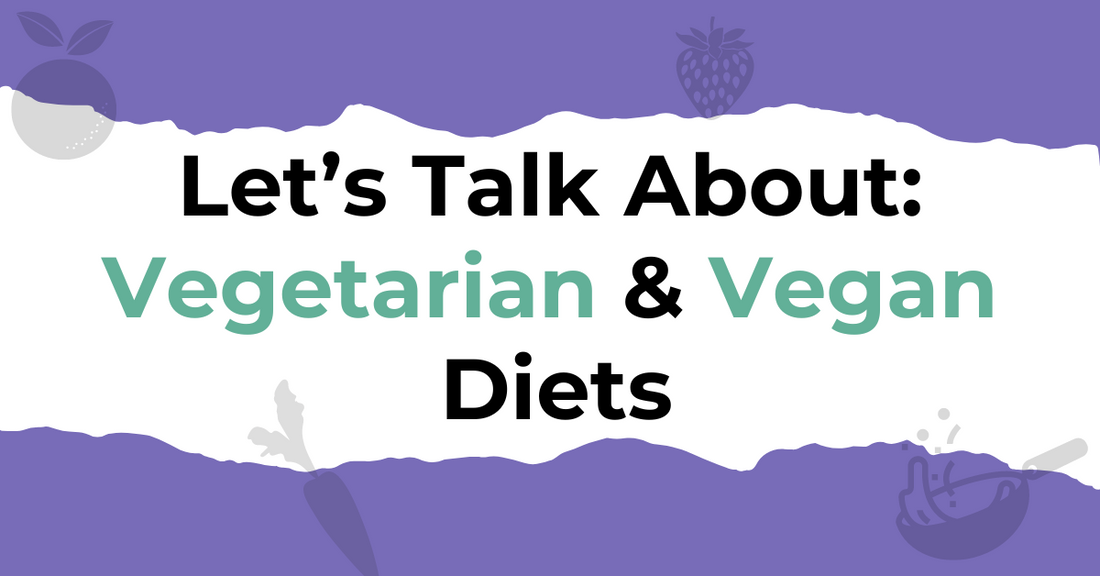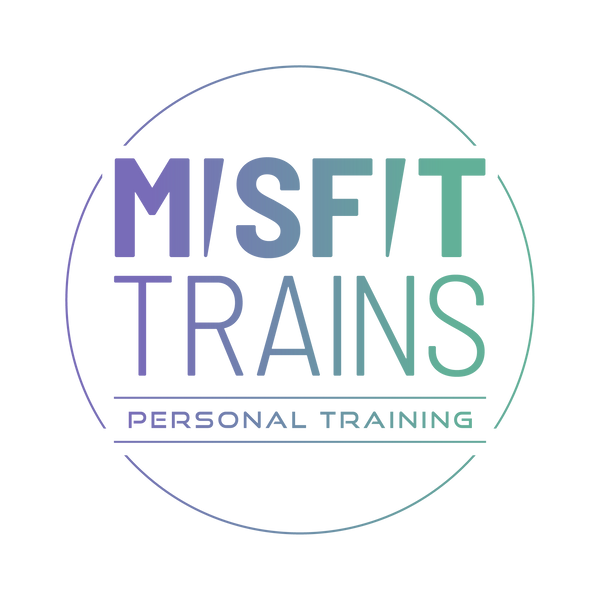
Let's Talk About: Vegetarian and Vegan Diets
Share
You may or may not know that I am vegetarian (bordering on vegan). I don't eat meat, fish, eggs, or drink milk. People choose to become vegetarian or vegan for many reasons; for me, it’s about the animals, and I don’t want to eat them (no judgement to meat eaters, my boyfriend is one).
But two loads of cooking aside (sorry, Joe), it comes with other issues, one of which has become a bit more prominent for me. I’ve been feeling extremely fatigued recently, and it was starting to impact my life, so I decided to get some blood tests. The results are in, and I am iron and vitamin B12 deficient, which is not uncommon for people like me. Thankfully, I am in a position where I am nutritionally aware enough to know what I need to do before it becomes worse.
How Did I Get Here?
Time for some science! Iron is found in meat and poultry and, thankfully for me, kidney beans, lentils, and chickpeas. Iron is necessary for growth and development; it is used by the body to make haemoglobin, found in red blood cells, which transports oxygen to the body. So, it’s important! How much we need depends on age and gender; for us ladies, we need more than men do. By cutting out the main source of iron, it’s easy to see how someone can become deficient.
Vitamin B12 is found in meat, dairy, and eggs. It is non-existent in plant-based foods other than some fermented foods and nutritional yeast, which means lots of vegetarians and vegans need to rely on supplementation for B12. It helps with forming and dividing red blood cells, protecting your nervous system, and giving your body energy. How much you need will again depend on age and gender. Again, it’s pretty easy to see how a person could become deficient.
How Bad Is It?
Well, I am lucky enough that I am not considered anaemic, the term for both severe iron and B12 deficiency, so with a few quick changes to my diet, I can get back on track. While my diet overall is pretty good and I have been considerate of these two things for a long time, there is room for improvement (just for info, I have been vegetarian for 7 years and stopped eating eggs around 3 years ago, so I certainly didn't get here quickly!).
But while I am on the lucky side (mostly because I have some nutritional knowledge), it’s not always that way.
Symptoms of Iron Deficiency
Common Symptoms
- Tiredness and lack of energy
- Shortness of breath
- Noticeable heartbeats (heart palpitations)
- Paler than usual skin
- Headaches
Severe Symptoms
Left untreated, iron deficiency can lead to anaemia, heart problems, increased risk of illness and infection, as well as complications for pregnant women.
Symptoms of Vitamin B12 Deficiency
Common Symptoms
- Rapid breathing or shortness of breath
- Headaches
- Indigestion
- Loss of appetite
- Palpitations
- Problems with your vision
- Feeling weak or tired
- Diarrhoea
- A sore or red tongue, sometimes with mouth ulcers
- Problems with memory, understanding, and judgement (cognitive changes)
Severe Symptoms
Left untreated, B12 deficiency can lead to issues with your brain and nervous system, including tingling or pain, trouble walking, uncontrollable muscle movements, loss of balance, numbness and tingling in the hands and feet, loss of physical coordination, and damage to parts of the nervous system. It can also cause problems with smell or taste, vision problems, diarrhoea, and unwanted weight loss.
Supplementation
There are hundreds if not thousands of supplements, so finding one that suits you is going to be important as well as ensuring that you’re happy to take one probably every day! I strongly recommend that if you feel that supplements are the way you want to go then it is important to check in with a medical professional beforehand!
To Sum Everything Up
Navigating a vegetarian or vegan diet comes with its own set of challenges, particularly regarding nutrient deficiencies like Iron and B12. It's crucial to be aware of these potential pitfalls and take proactive steps to address them, whether through dietary adjustments or supplementation. By staying informed and vigilant, you can maintain a balanced and healthy lifestyle without compromising your dietary principles.
